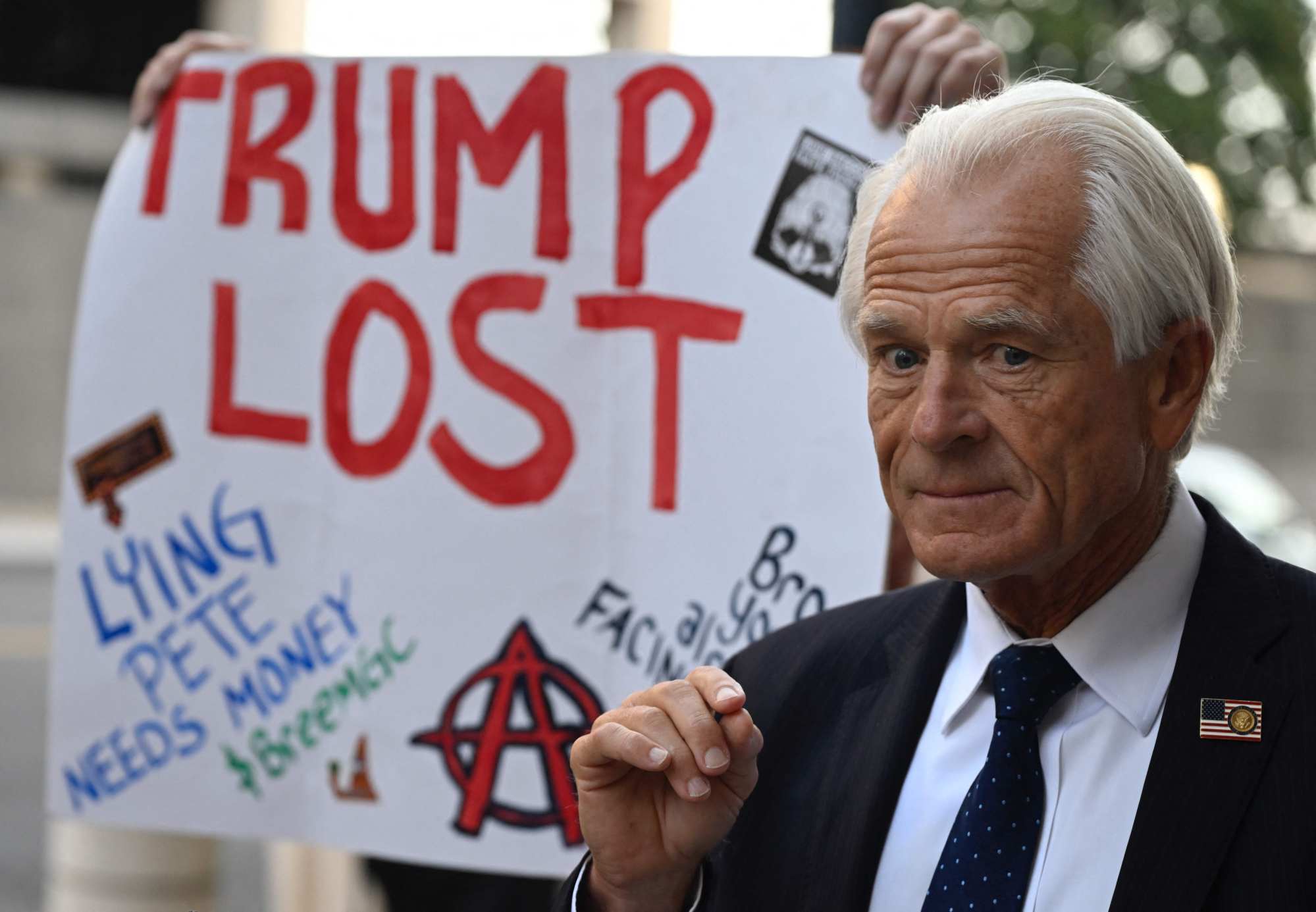
Peter Navarro, top Trump adviser who pushed US-China trade war, enters prison for defying Congress
- Chief advocate for tariffs that remain in place loses bid to stave off jail time over refusal to cooperate with congressional January 6 investigation
- Navarro slams US justice system for dealing ‘crippling blow to the constitutional separation of powers and executive privilege’
Peter Navarro, Trump’s top trade adviser and one of the administration’s most strident anti-China voices, reported to the facility after a court in Washington found that his appeal would not likely reverse his conviction.

On Monday night, the US Supreme Court denied a request by Navarro to avoid prison while he appeals his conviction.
His 2011 book Death by China: Confronting the Dragon – A Global Call to Action accuses China of currency manipulation, deliberately harming Americans with dangerous consumer goods and a laundry list of other allegations.
Trump, who won the White House in 2016, charged that China used unfair practices to hollow out America’s manufacturing base and pledged to bring those jobs back.
US upping pressure on Mexico to close the back door with curbs on China imports
As the trade war escalated, the Trump administration imposed tariffs of up to 25 per cent on more than US$300 billion worth of Chinese imports, most of which remain in place nearly six years later.
Speaking to reporters across the street from the prison before turning himself in, Navarro reiterated his claim that his decision to ignore the congressional subpoena was protected by executive privilege connected to his White House tenure.
Mehta had ruled earlier that no evidence was presented to prove that the privilege was actually invoked.
“When I walk in that prison today, the justice system such as it is will have done a crippling blow to the constitutional separation of powers and executive privilege,” he said, pledging to appeal his conviction up to the Supreme Court.
China hits out at US ambassador for ‘multiple negative comments’
In light of the developments in recent years, many manufacturers in China, local firms included, have established production bases outside the country.
‘Rapid fraying’ of China-US ties seen in 2024, but full decoupling ‘unlikely’
The Tax Foundation, a non-partisan Washington-based think tank, estimated in a report last year that the tariffs account for about US$71 billion in annual federal tax revenues – the lion’s share of the US$74 billion in annual revenues raised by tariffs enacted during the Trump administration.
“Before any elected official or appointed officials starts talking about how good tariffs are, they need to look at the results of how these tariffs have been applied to some manufacturers here in America and how that’s actually cost jobs for American manufacturing workers,” Timmons said last month.
Data from the US Bureau of Labor Statistics showed that despite punitive tariffs on Chinese imports and billions of dollars in subsidies and tax breaks, manufacturers added only 12,000 jobs to the US economy in 2023.
No end to US trade war with China, Biden policy document signals
The data also indicated 23,000 new manufacturing jobs were created in January.
Regardless of whether the tariffs are deemed helpful in adding American jobs in the long term, some of Navarro’s work has been called into question.
All reprints of the book now “alert” readers that the Harvard-educated economist Ron Vara quoted within its pages is fictional.

